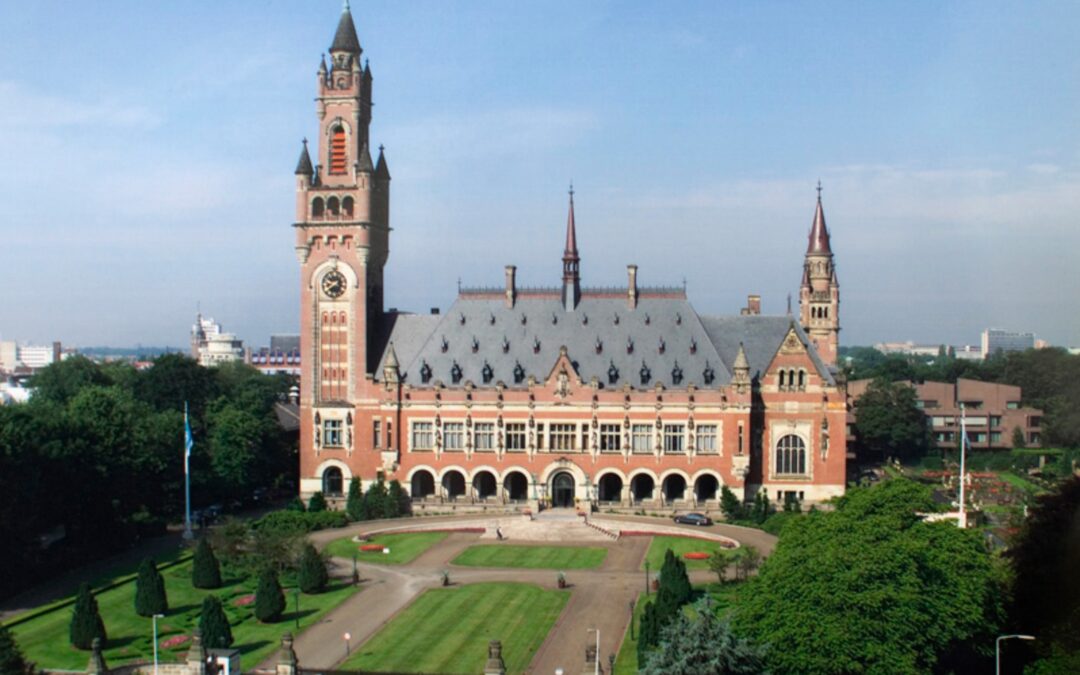
Dec 5, 2019 | Advocacy, Analysis briefs
Today, the International Commission of Jurists published a legal briefing on the hearing on provisional measures to be held at the International Court of Justice between 10-12 December 2019 in the case of The Gambia v Myanmar.
Questions answered include:
- What allegations does The Gambia make against Myanmar?
- What provisional measures has The Gambia requested?
- What are provisional measures?
- What is the process for requesting provisional measures?
- What factors are taken into account on a request for provisional measures?
- If the Court indicates provisional measures, are they binding on the parties?
- What is Daw Aung San Suu Kyi’s role in the proceedings?
Download:
Myanmar-Provisional Measures Briefing-Advocacy-Analysis Brief-2019-ENG (English)
Myanmar-Provisional Measures Briefing-Advocacy-Analysis Brief-2019-BUR (Burmese)
Contact:
Kingsley Abbott, Senior Legal Adviser and Coordinator of the ICJ’s Global Accountability Initiative, kingsley.abbott(a)icj.org
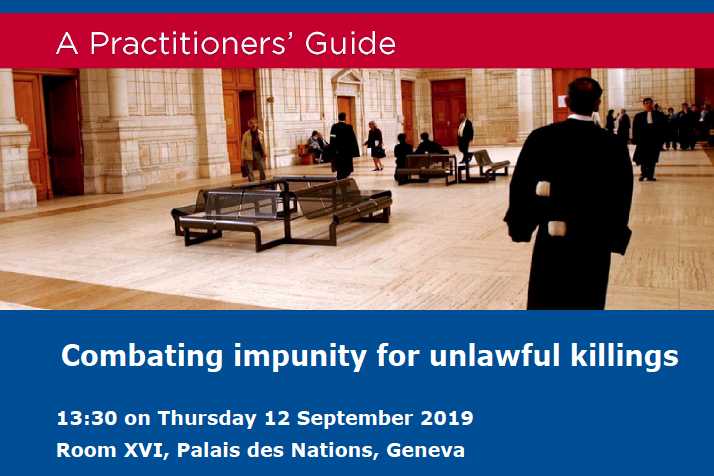
Sep 10, 2019 | Events, News
The ICJ invites you to a discussion of new tools to assist investigation and accountability for extrajudicial, summary or arbitrary executions, and other potentially unlawful deaths. The event takes place on Thursday, 12 September, 13:30, Room XVI, at the Palais des Nations in Geneva.
ICJ’s new Practitioners’ Guide No 14 on the Investigation and Prosecution of Unlawful Death helps legal practitioners ensure that investigation and accountability processes are implemented in accordance with international human rights law.
The Guide elaborates on the revised Minnesota Protocol on the Investigation of Potentially Unlawful Death (2016), a set of practical standards and guidelines that was updated by former UN Special Rapporteur on extrajudicial, summary or arbitrary executions, Christof Heyns, and published by the Office of the United Nations High Commissioner for Human Rights (OHCHR) in 2017.
The panel discussion will highlight key elements of the Protocol and Practitioners Guide, and their relevance to cases such as the 2016 killing of political commentator, Kem Ley, in Cambodia and the 2018 killing of Saudi Journalist, Jamal Khashoggi in Turkey.
Speakers
- Agnes Callamard, Special Rapporteur on extrajudicial, summary or arbitrary executions (by video conference, TBC).
- Stuart Maslen, Honorary Professor, Centre for Human Rights, University of Pretoria.
- Kingsley Abbott, Senior Legal Adviser & Coordinator of the ICJ’s Global Accountability Initiative.
Moderator
- Carolina Villadiego, ICJ Legal and Policy Adviser, Latin America
Printed copies of the ICJ’s Practitioners’ Guide No 14 on the Investigation and Prosecution of Unlawful Death will be available.
A flyer for the event is available here.
*** Room XVI is on the 5th floor of Building A, behind the Assembly Hall, accessible by the elevators at the Salle des Pas Perdus. Details here.
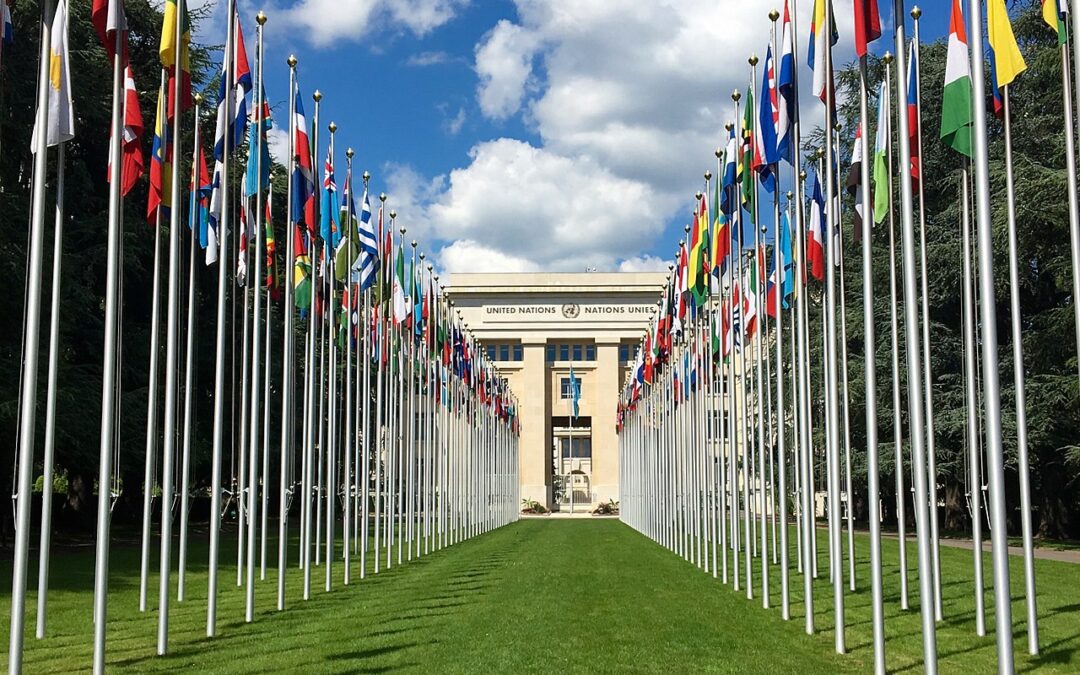
Mar 5, 2019 | News
States at the United Nations Human Rights Council in Geneva should ensure that Egypt is not allowed to seize a leading role in relation to the mandate of the United Nations’ expert on human rights and counter-terrorism, nine international human rights organizations, including the ICJ, have said.
In light of Egypt’s record of severe and widespread abuse of counter-terrorism measures to violate human rights, the organizations warned against attempts by Egypt to undermine the expert’s mandate.
The mandate of the UN Special Rapporteur on the promotion and protection of human rights and fundamental freedoms while countering terrorism is due to be renewed in the coming weeks at the ongoing Human Rights Council session in Geneva.
Mexico has for many years led the resolution that established and maintained the expert, but is understood now to be in discussions with Egypt about a possible leadership role for Egypt.
Other changes to the resolution text may also be under consideration.
“Egypt has an appalling record of abusing counter-terrorism measures against human rights defenders and other dissenting voices, and was recently denounced by the UN Special Rapporteur on human rights defenders for severe reprisals against people who spoke with another visiting UN expert,” said Matt Pollard, Senior Legal Adviser and UN representative for the ICJ.
“To give such a country shared leadership on the renewal of the mandate of the UN’s expert on human rights and counter-terrorism would only do further harm to civil society and others in Egypt and elsewhere, undermine the work of the expert and the UN as a whole, and badly tarnish the long history of leadership Mexico has shown on these issues,” he added.
Nine organizations – ICJ, Amnesty International, ARTICLE 19, Cairo Institute for Human Rights Studies, CIVICUS/World Alliance for Citizen Participation, International Federation for Human Rights (FIDH), Human Rights Watch, International Service for Human Rights, and Privacy International – had earlier sent a joint letter to all countries representatives in Geneva highlighting their concerns.
This was followed by a joint oral statement at the Human Rights Council session on 1 March, during an interactive dialogue with the special rapporteur.
Egypt has gradually sought to dilute or distort the longstanding focus of the UN Human Rights Council’s work to protect and promote human rights and fundamental freedoms while countering terrorism, the groups said.
In 2018 it succeeded in watering down the council’s longstanding thematic resolution on the topic, in which states annually recognize concerns about abuses and urge respect for human rights at a global and abstract level.
However, any move to gain control over the resolution on which the mandate of the special rapporteur depends, or to dilute or reframe her mandate, would have far deeper and further-ranging damaging effects.
The special rapporteur acts on individual complaints, reports on the situation in particular countries, and addresses in detail topics relating to counterterrorism work around the world on an ongoing basis.
The special rapporteur also serves an essential function in providing independent oversight of counterterrorism measures from a human rights perspective within the overall UN system.
The mandate holds a uniquely important role in the UN counterterrorism architecture, as the only UN entity with the exclusive mandate to ensure the promotion and protection of human rights while countering terrorism.
The organizations have been urging other countries to strongly oppose any attempts to weaken the mandate of the special rapporteur.
The special rapporteur’s role should not be diluted by including the flawed Egyptian-led approach into the resolution for its renewal, or by sharing the leadership of the mandate renewal resolution with Egypt or other countries that have such an appalling record in relation to the very issues the mandate is to address, they said.
Allowing Egypt to jointly lead the mandate renewal would only serve to encourage a continuation of its pattern of gross human rights violations and abuses against civil society and others within Egypt in the name of countering terrorism, while shielding it from international scrutiny, the groups said.
It would also pose a long-term threat to the UN’s role in ensuring that counterterrorism measures are consistent with human rights, and that measures to uphold human rights for all and the rule of law are the fundamental basis for the fight against terrorism.
Contact
Matt Pollard, ICJ Senior Legal Adviser & UN Representative, t: +41 79 246 54 75 ; e: matt.pollard(a)icj.org
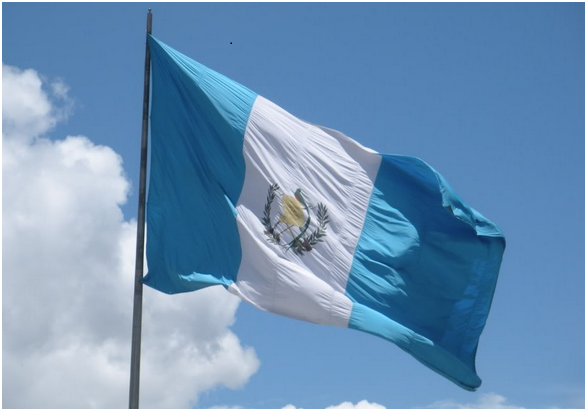
Dec 19, 2018 | News
According to information published in the Official Gazette, the government of Guatemala has ordered that eleven more officials and two family relatives from the CICIG leave the country within 72 hours from the time of issuing the notification. However, no official communication using the usual diplomatic channels has yet been sent to the CICIG.
In September 2018, the head of the CICIG, Commissioner Ivan Velasquez, was banned from re-entering the country and the government stated it would not renew the CICIG mandate after September 2019.
Ramon Cadena, the ICJ Director for Central America, stated: “The ICJ considers this new measure is designed to hinder criminal investigations against high-level government officials accused of corruption.”
The CICIG acts as a special prosecutor in serious corruption and other criminal cases and carries out investigations to identify responsible parties. The persons who have been asked to leave the country are the lawyers, police and prosecutors who are investigating important corruption cases, such as the ‘The Line’ case, in which the former President and Vice-President have been charged and other cases including those within the National Police.
Ramon Cadena continued: “It cannot escape anyone’s attention that one of the CICIG investigators who has been asked to leave the country was the person who is responsible for the corruption case involving the General Property Registry, that allegedly implicates both the son and brother of President Jimmy Morales”.
This new measure by the government seriously affects the rule of law and constitutes a flagrant violation of article 10 (4) of the agreement establishing the CICIG signed between Guatemala and the UN, which states:
“The Government agrees to provide to CICIG and its personnel the security necessary for the effective completion of CICIG’s activities throughout Guatemala, and to protect the personnel of CICIG, whether national or international, from abuse, threats, reprisals or acts of intimidations, in virtue of their status as personnel of, or their work for CICIG.”
Cadena added: “It is deeply regrettable that it is precisely the CICIG staff acting in high-impact cases who are being targeted by these measures because of their work to combat corruption and impunity. It is clear that the government is seeking to divert the CICIG from its path.”
Furthermore, according to the UN Basic Principles on the Role of Lawyers, No 16: “Governments shall ensure that lawyers: a) are able to perform all of their professional functions without intimidation, hindrance, harassment or improper interference… “ Cadena continued, “The ICJ is deeply concerned that several CICIG personnel affected by these measures are lawyers and members of the Guatemalan Bar Association. Their work is being hindered and the Guatemalan Bar Association should take action to defend its members.”
“Guatemala should comply with international human rights law and ensure that acts of corruption that impact human rights are fairly and impartially investigated and prosecuted. The presence of the CICIG contributes to ensuring that Guatemala complies with its international obligations” he added.
Cadena concluded by stating: “With these arbitrary measures, the Constitutional order of Guatemala and its democratic institutions are undermined. The Guatemalan State should ensure effective measures are taken against corruption, consistent with its international human rights and other obligations. The CICIG is one of the most successful examples of work to end corruption and impunity. The Guatemalan authorities should support the CICIG instead of hindering its work and obstructing justice.”
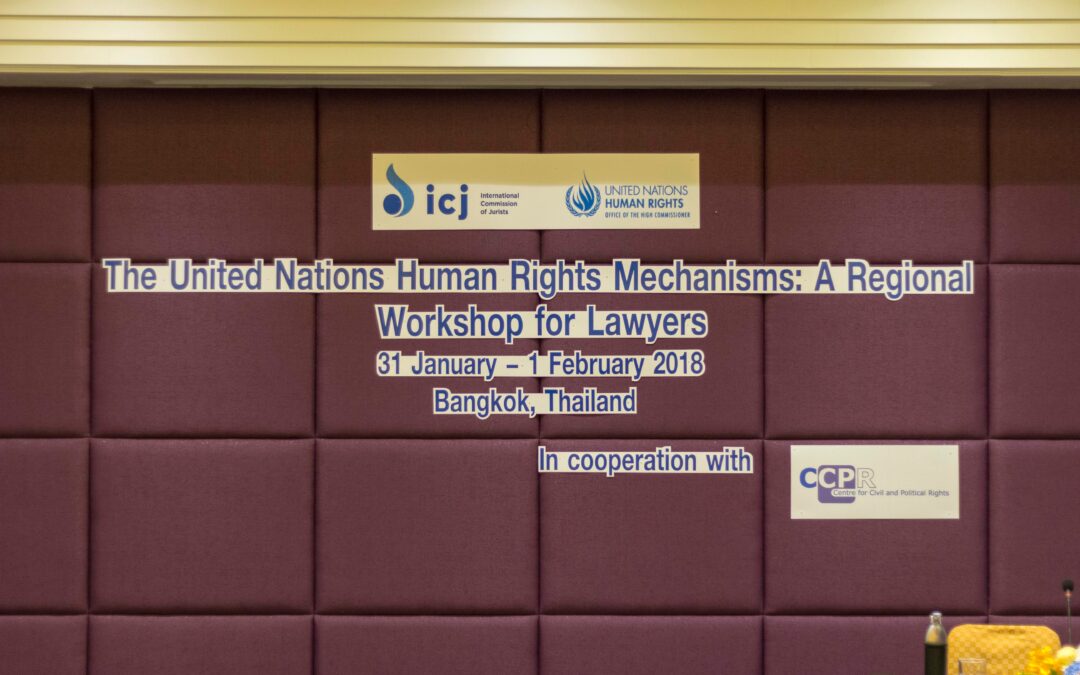
Feb 27, 2018 | Events, News
The ICJ, in collaboration with the UN High Commissioner for Human Rights Regional Office for South-East Asia (OHCHR), and the Centre for Civil and Political Rights, organised a workshop for lawyers from southeast Asia, on engaging with UN human rights mechanisms.
The two-day workshop provided some thirty lawyers from Thailand, Cambodia, Vietnam, and Lao PDR with knowledge, practical skills and expert advice about UN human rights mechanisms, with the participants themselves sharing their own experiences and expertise.
In addition to explaining what the UN mechanisms are and how they work, the workshop discussed how lawyers can use the outputs of UN human rights mechanisms in their professional activities, as well as how to communicate with and participate in UN human rights mechanisms in order to ensure good cooperation and to best serve the interests of their clients.
Sessions were introduced by presentations by the ICJ’s Main Representative to the United Nations in Geneva and OHCHR officials, followed by discussions and practical exercises in which all participants were encouraged to contribute questions and their own observations.
A special discussion of effective engagement of lawyers with Treaty Bodies was led by Professor Yuval Shany, a member of the Human Rights Committee established to interpret and apply the International Covenant on Civil and Political Rights (ICCPR).
The workshop also aimed to encourage the building of relationships and networks between the lawyers from across the region.
The workshop forms part of a broader project of awareness-raising and capacity-building for lawyers from the region, about UN mechanisms.
A similar workshop was held in January 2017 for lawyers from Myanmar.
The project has also published (unofficial) translations of key UN publications into relevant languages, and is hosting lawyers in a mentorship programme in Geneva.
More details are available by contacting UN Representative Matt Pollard (matt.pollard(a)icj.org) or by clicking here: https://www.icj.org/accesstojusticeunmechanisms/









